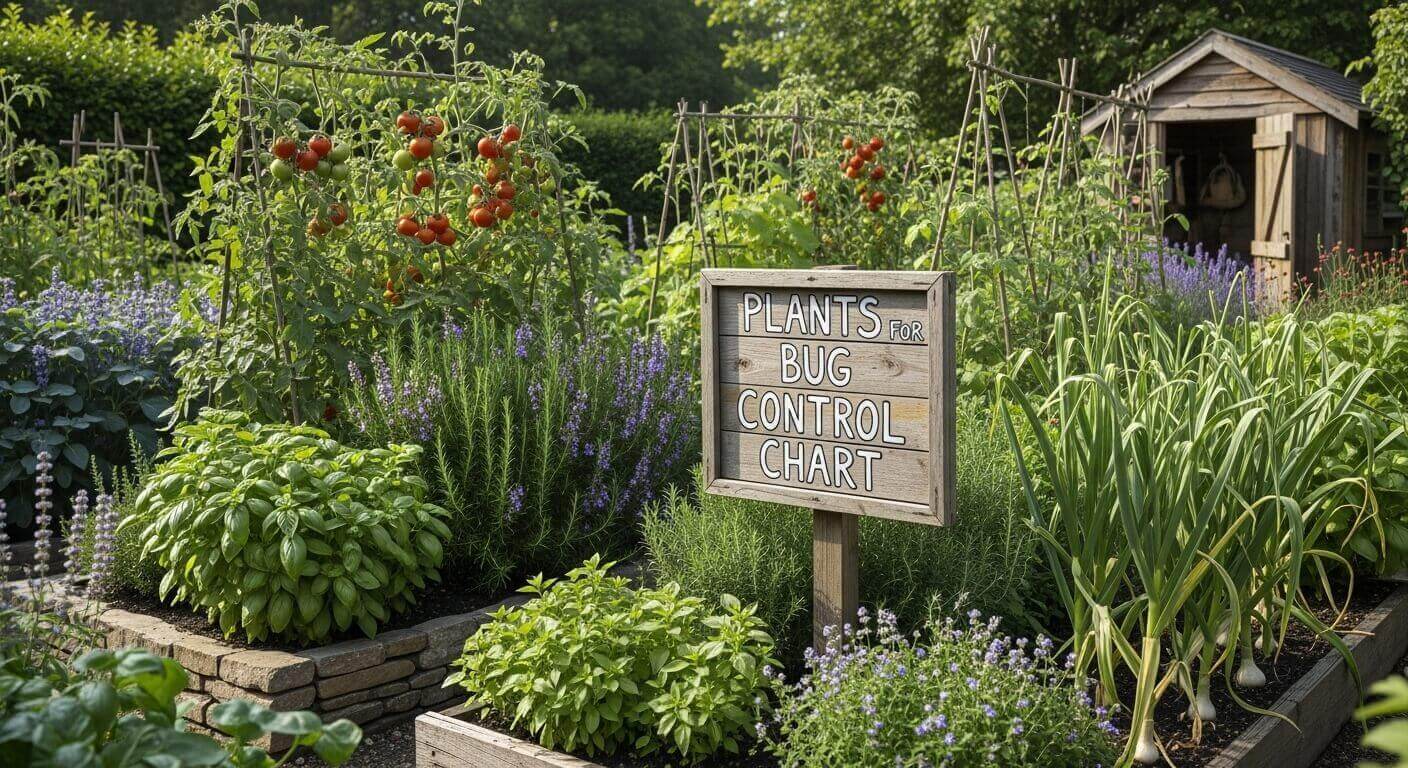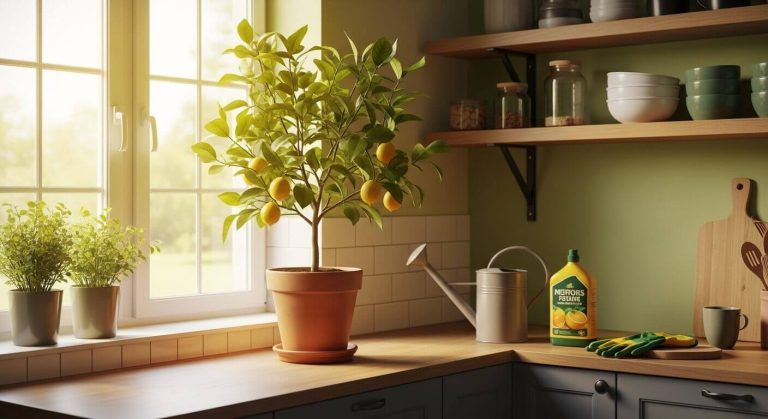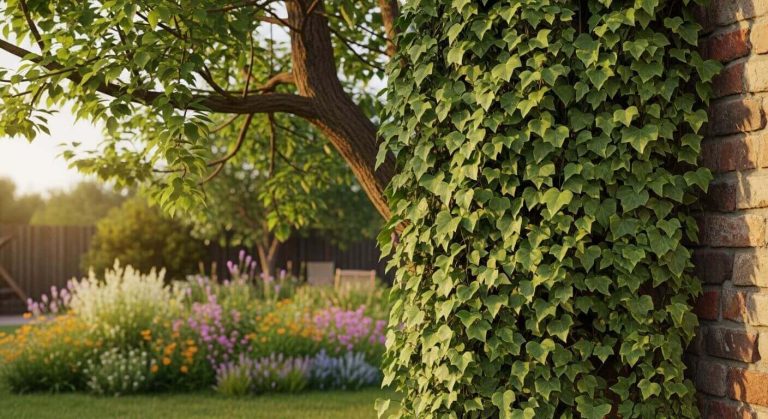10 Best Plants for Bug Control: A Powerful Natural Pest-Repellent Chart for Your Garden
Let’s face it—bugs love our gardens almost as much as we do. From sneaky aphids nibbling on tender leaves to tomato hornworms chomping like they’re at a buffet, pests can make gardening feel like a full-time battle. But here’s the good news: you don’t need harsh sprays or expensive chemicals to win.
Welcome to “10 Best Plants for Bug Control: A Natural Pest-Repellent Chart for Your Garden.” By the end of this guide, you’ll know exactly which herbs and vegetables double as bodyguards for your greens. Think of it as hiring bouncers for your plants—except these bouncers smell like basil and rosemary.
🌱 Why Use Plants for Bug Control?
Gardening is about working with nature, not against it. Instead of dousing your kitchen garden in pesticides, why not let plants do the heavy lifting? Many herbs and vegetables naturally repel bugs thanks to their aromatic oils, compounds, or growth patterns.
This practice, called companion planting for pest control, has been used for centuries. Farmers and gardeners noticed that certain crops thrive when grown together, while others ward off unwanted insects. It’s like seating friends at the same dinner table while keeping out the uninvited guests.
Benefits of using plants for bug control:
- Reduces reliance on chemical pesticides
- Supports pollinators like bees and butterflies
- Creates a balanced, eco-friendly garden system
- Doubles as a kitchen garden pest deterrent
- Saves money—who doesn’t love free bug repellent?
So, let’s dive into the stars of the plants for bug control chart—ten tried-and-true companions that keep your garden safe.
🌿 1. Basil – The Fly Fighter
Basil isn’t just for pesto—it’s a natural fly and mosquito deterrent. Its strong fragrance confuses pests, making it harder for them to locate your vegetables.
How Basil Helps:
- Repels houseflies and mosquitoes
- Protects tomatoes from tomato hornworms
- Works well in pots or borders
👉 Try companion planting basil with tomatoes and peppers for a double win: fewer bugs and tastier veggies.
Pro Tip: You can grow basil right on your balcony. (Check our guide on balcony vegetable gardens for more ideas.)
Buy Organic Basil Seeds on Amazon

🌱 2. Chives – The Aphid Assassin
Chives aren’t just salad toppers. Their onion-like smell keeps aphids, carrot flies, and even Japanese beetles away.
How Chives Protect Your Garden:
- Repel aphids and mites
- Improve growth and flavor of nearby carrots and tomatoes
- Attract pollinators with pretty purple blooms
Garden Hack: Plant them at the edges of your kitchen garden for a natural pest-repellent border.
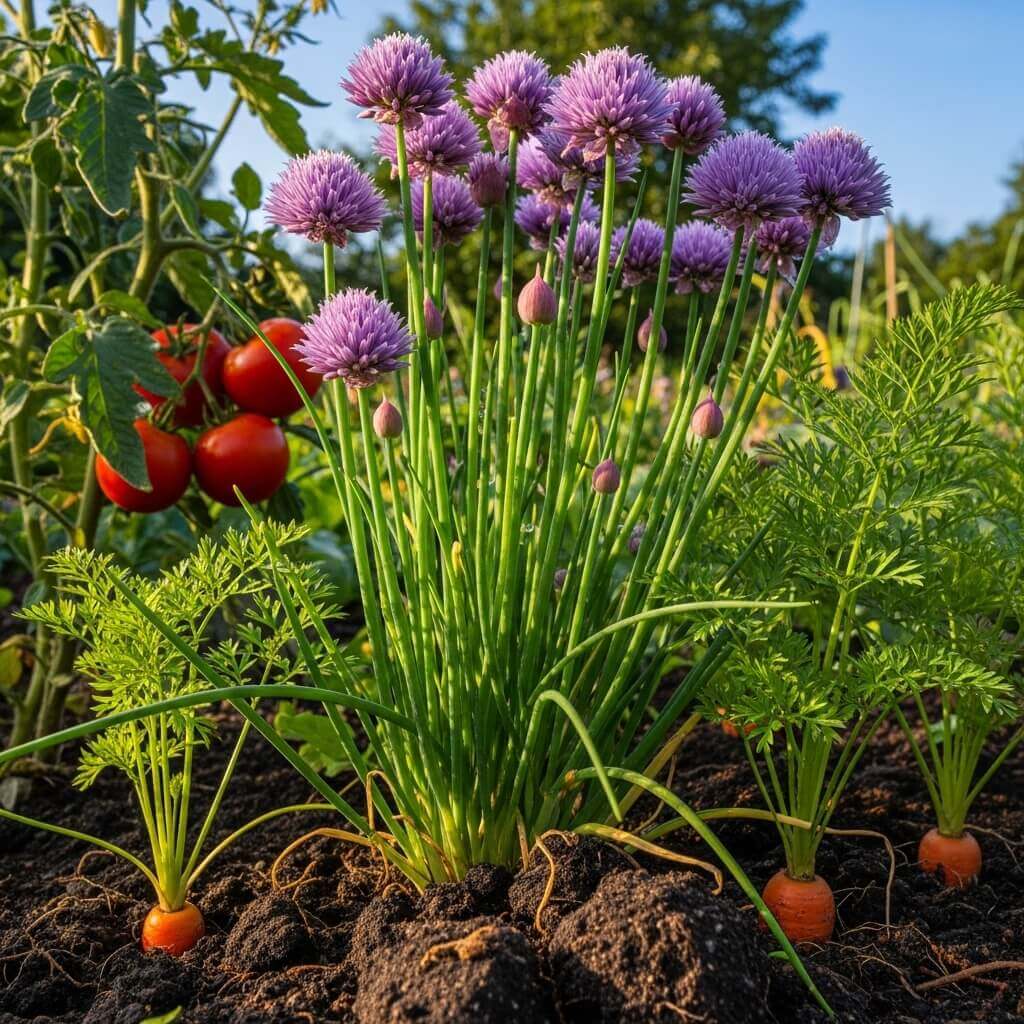
🌿 3. Coriander (Cilantro) – The Multi-Tasker
Cilantro isn’t just a love-it-or-hate-it herb in the kitchen—it’s also a bug deterrent.
Bug Control Benefits:
- Deters spider mites, potato beetles, and aphids
- Flowers attract beneficial insects like hoverflies (they eat pests!)
Fun Fact: Some people say cilantro tastes like soap—well, guess what, pests agree.
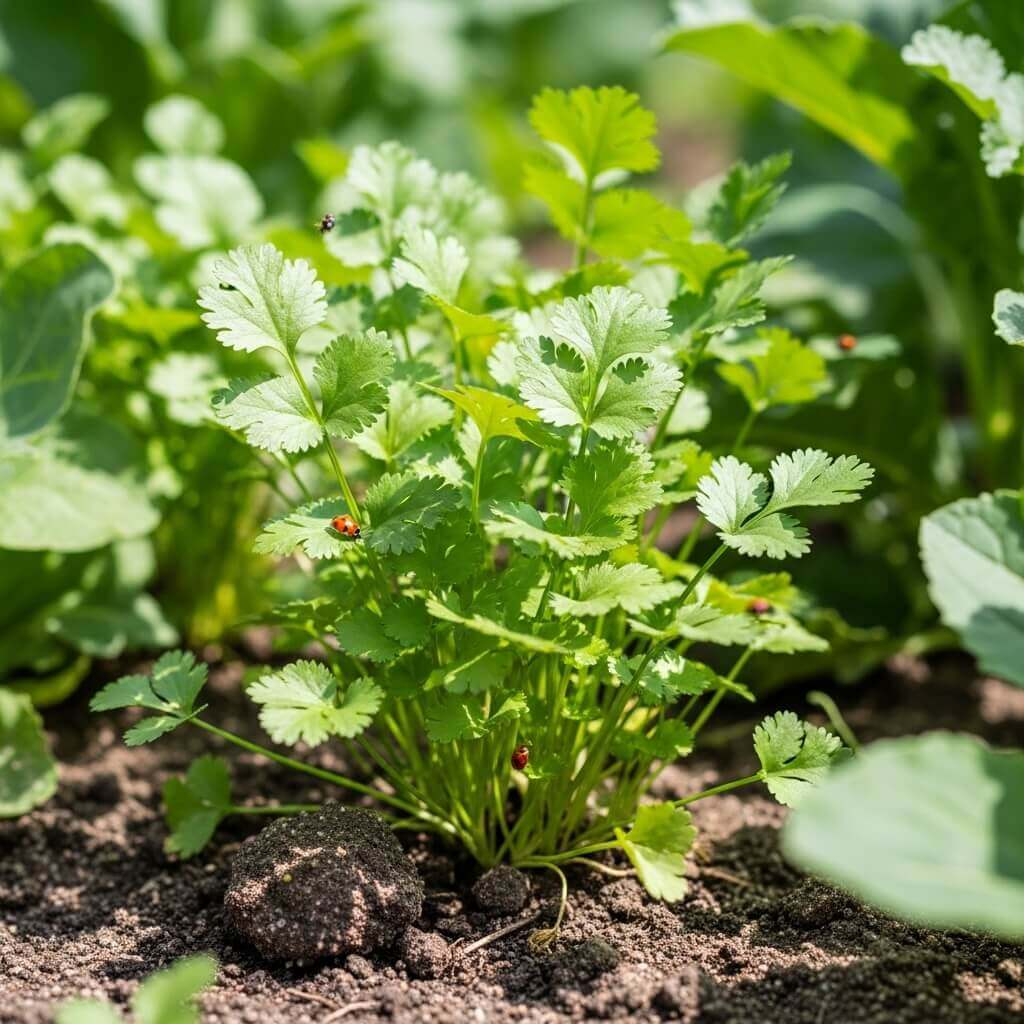
🌱 4. Dill – The Ladybug Magnet
Dill pulls double duty by scaring off pests and attracting beneficial insects.
Pest Control Features:
- Repels cabbage loopers and squash bugs
- Attracts ladybugs and wasps, which eat caterpillars and aphids
- Pairs beautifully with cabbage and onions
Think of dill as the friendly neighbor who keeps troublemakers away but invites the right friends over for dinner.
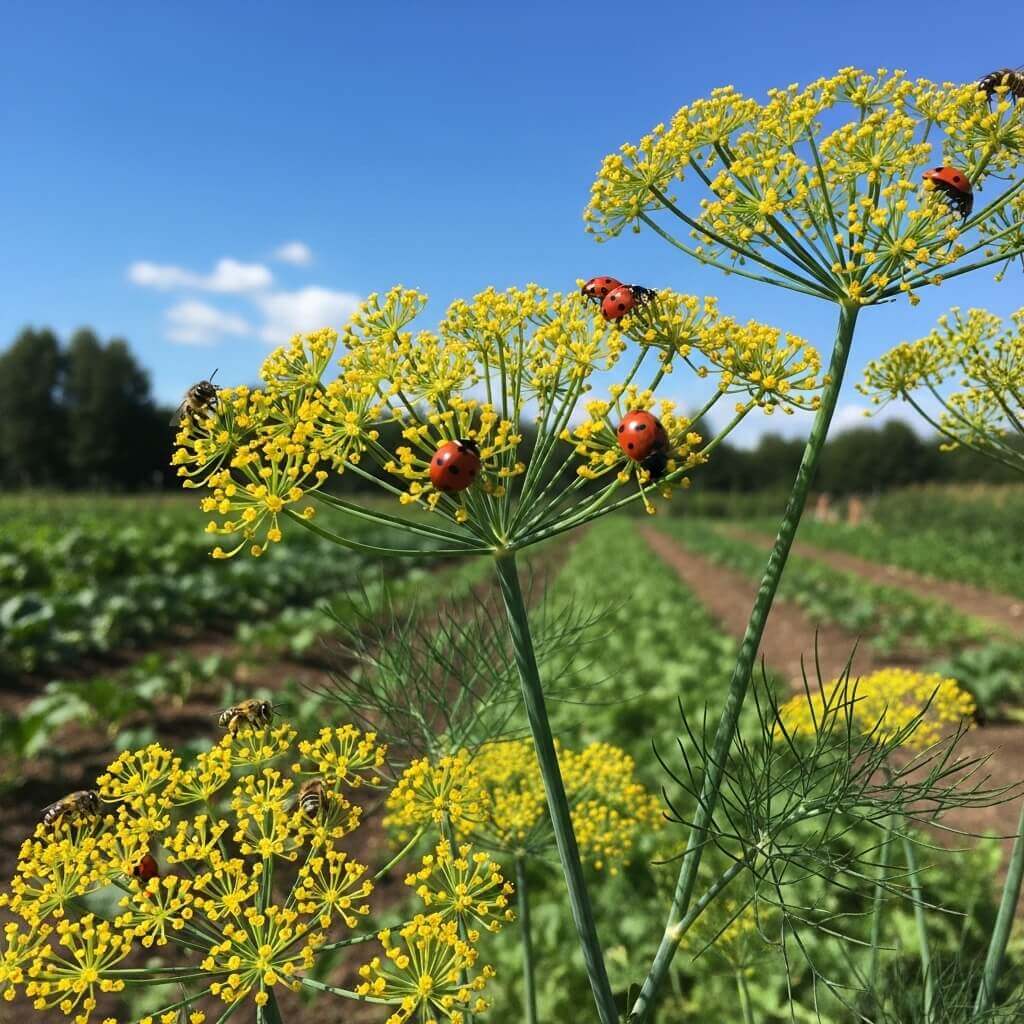
🌿 5. Fennel – The Natural Repellent
Fennel’s strong aroma drives away garden intruders like slugs and aphids.
Bug Repelling Qualities:
- Repels slugs and snails
- Attracts pollinators with its umbrella-shaped flowers
- Great for companion planting for pest control with brassicas
⚠️ But be careful: fennel doesn’t play well with all vegetables, so plant it in a separate spot.
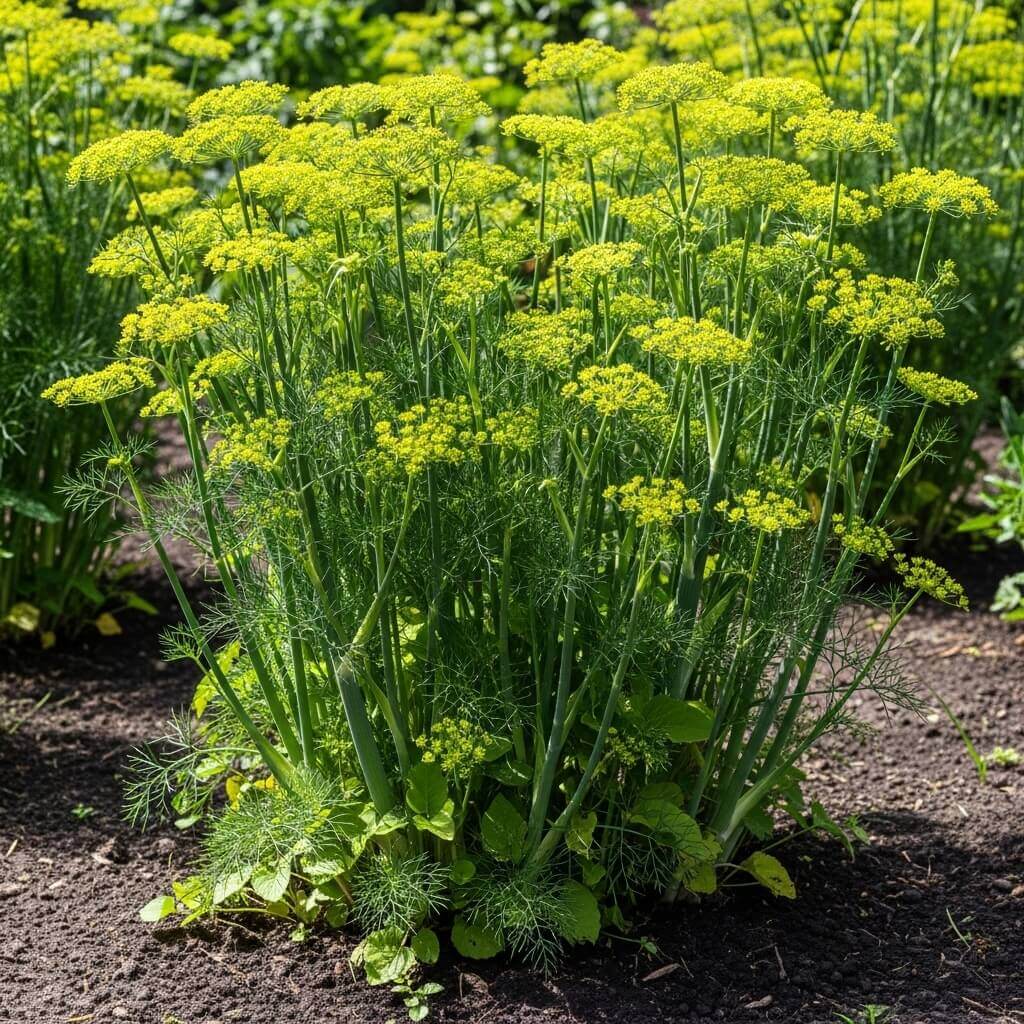
🌱 6. Garlic – The Bug Bouncer
Garlic isn’t just for scaring off vampires. Its sulfur compounds make it a powerful pest deterrent.
Pest Protection Perks:
- Repels aphids, whiteflies, and Japanese beetles
- Can even deter fungal diseases
- Perfect for a kitchen garden pest deterrent
Bonus: garlic improves the flavor of nearby vegetables. Who knew your garden could double as a gourmet kitchen?

🌿 7. Radish – The Trap Crop
Radishes act as a decoy plant. They lure pests away from your prized veggies.
Radish in Action:
- Attracts flea beetles and root maggots, keeping them away from lettuce and carrots
- Grows quickly and provides an early harvest
- A reliable “sacrificial plant” for bug control in kitchen gardens
It’s like throwing a decoy snack at bugs so your main crop stays safe.
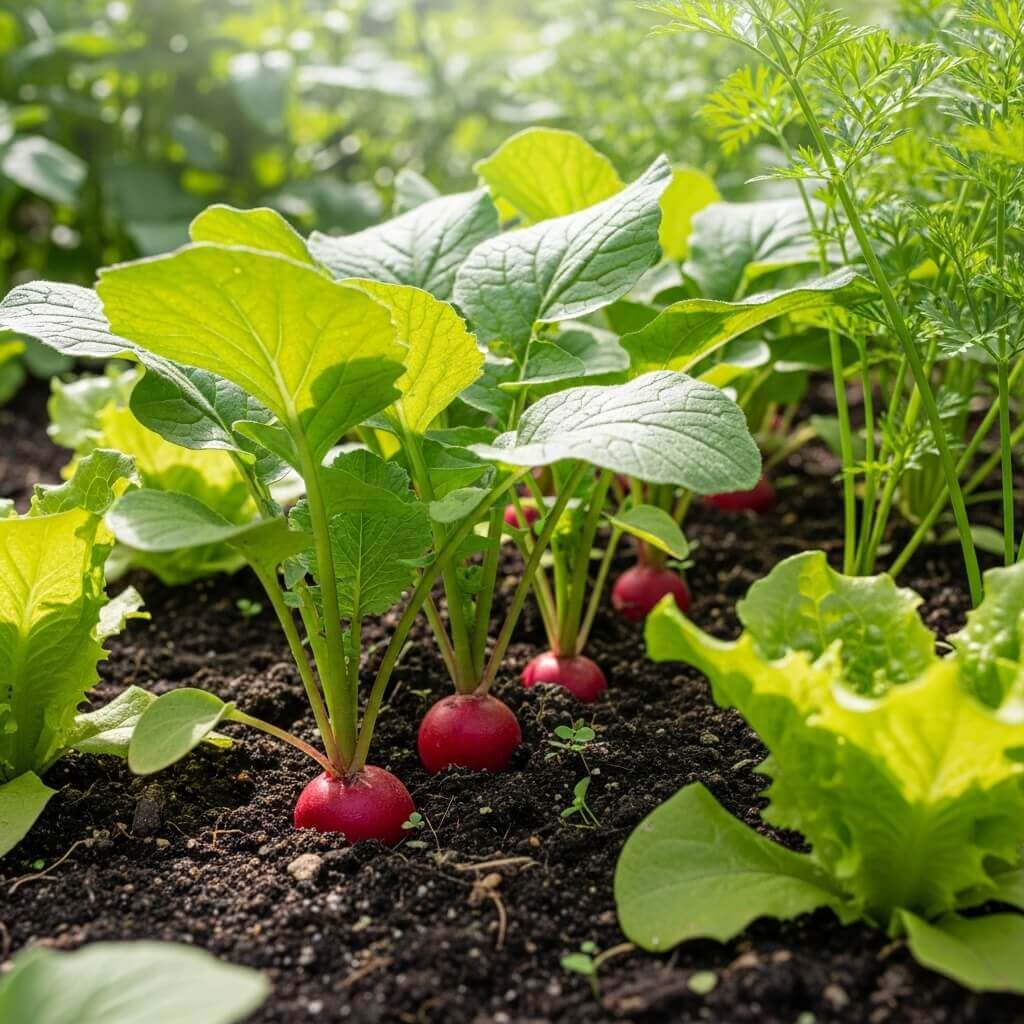
🌱 8. Rosemary – The Mosquito Repellent
Rosemary is more than just a fragrant herb for roasts. Its woody scent repels mosquitoes, flies, and moths.
Why Rosemary Works:
- Repels mosquitoes, cabbage moths, and carrot flies
- Drought-tolerant and easy to grow
- Excellent for container gardening
Imagine enjoying a summer evening in your bug-free garden while rosemary adds flavor to your barbecue. That’s what we call a win-win.

🌿 9. Thyme – The Ground Protector
Thyme is a small herb with a big reputation for pest control.
Thyme Benefits:
- Repels whiteflies, cabbage worms, and tomato hornworms
- Works as a ground cover to prevent weeds
- Perfect companion for brassicas (like broccoli and cabbage)

🌱 10. Tomato – The Companion Hero
Tomatoes are not just vulnerable to pests—they also repel them when planted wisely.
Tomato Power:
- Deters asparagus beetles
- Works well with basil for a bug-fighting duo
- Central to any plants for bug control chart
Tomatoes aren’t just delicious—they’re the superheroes of the vegetable patch.

🪴 How to Use the Plants for Bug Control Chart
Now that you know the 10 best plants, let’s put them into practice.
Steps to apply the chart in your kitchen garden:
- Choose your troublemakers. Identify which pests plague your garden.
- Match the plants. For aphids, go with chives or garlic. For mosquitoes, basil and rosemary are your friends.
- Plan companion planting. Pair protective plants with vulnerable crops.
- Rotate yearly. This keeps bugs guessing and prevents soil exhaustion.
For example, planting basil and tomatoes together not only deters bugs but also boosts tomato flavor. Talk about teamwork.
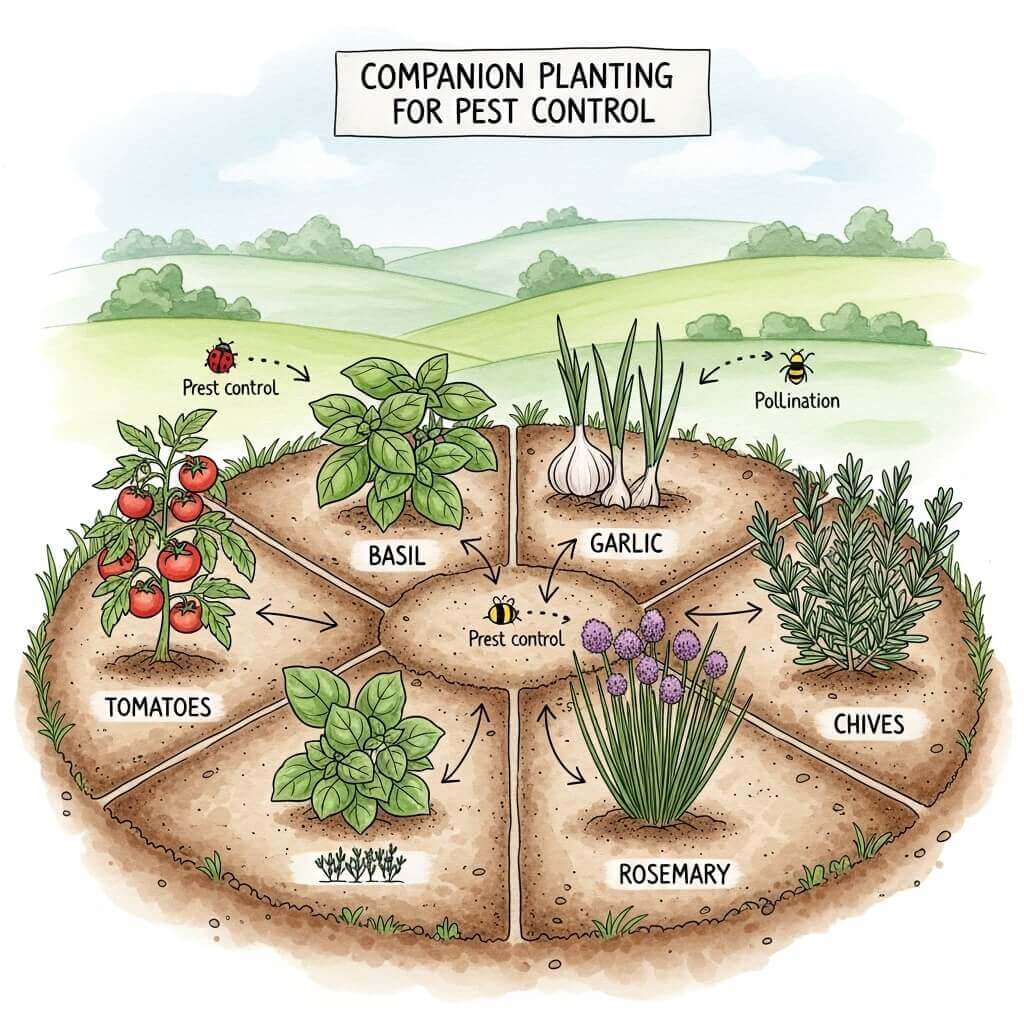
🌼 Extra Tips for Companion Planting for Pest Control
- Mix flowers and vegetables. Pollinator-friendly flowers like bee-attracting blooms support a healthier ecosystem.
- Use containers. Try container-friendly flowers and herbs to move bug-repellent plants around.
- Diversify your garden. A mix of herbs, vegetables, and flowers confuses pests.
- For more science-backed strategies, check out this companion planting guide from the University of Minnesota Extension.
Conclusion
There you have it—10 best plants for bug control that turn your garden into a natural fortress. From basil fighting mosquitoes to radishes distracting flea beetles, each plant plays its part in the ecosystem.
Remember, gardening is about balance. Instead of waging chemical wars, let your plants work as a kitchen garden pest deterrent.
Next time you see a bug buzzing around, don’t reach for the spray can. Just smile, knowing your rosemary, basil, and garlic have your back. Because when you think about it… who wouldn’t want a garden full of delicious food and built-in bodyguards? 🌿
